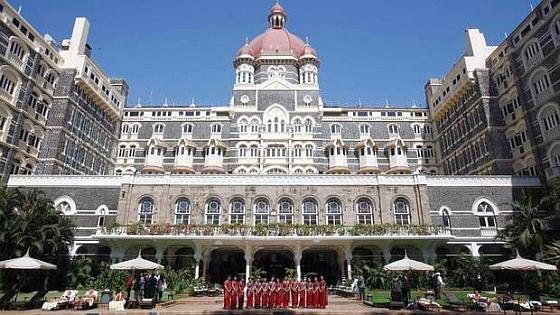 | « Back to article | Print this article |
Legal battle brews after Taj Mumbai gets eviction notice
After New Delhi's Taj Mansingh and Taj Palace hotels, lease renewal of Indian Hotels Company's (IHC's) Mumbai property, the most iconic, is facing trouble.
The tussle between IHC and Mumbai Port Trust, the landlord of Taj Mahal, Mumbai, is likely to intensify in the Bombay High Court soon.
Though Taj Mahal hotel's 99-year lease ended in 2001-02, Mumbai Port Trust sent it an eviction notice on March 12, 2012. IHC is learnt to have filed a suit in the Bombay High Court, seeking lease renewal.
The trust recently filed an affidavit in the court and the matter is likely to come for hearing in February.
When contacted by Business Standard, IHCL said it did not wish to comment on the matter.
Click NEXT to read more...
Legal battle brews after Taj Mumbai gets eviction notice
A senior port trust official said the notice was sent because the firm committed breaches of lease terms, such as unauthorised construction, change of land usage agreements and rental arrears.
He said the port trust indicated "its intention to initiate proceedings for eviction and recovery of arrears under the Public Premises (Eviction of Unauthorised Occupants) Act, 1971, if IHC failed to hand over the premises within six months of notice period".
Mumbai Port Trust, one of India's oldest ports, is dealing with lease issues with around 300 properties, both commercial and residential, in its area.
The Taj Mahal hotel has a three-part lease with the port trust. One parcel of land was let out for 99 years from November 1, 1900, another for the same period from August 1, 1902.
Click NEXT to read more...
Legal battle brews after Taj Mumbai gets eviction notice
The last part of the hotel land was let out from May 2, 1969, to October 31, 1999. While two parts of the lease expired on October 31, 1999, the third ended on July 31, 2001.
The two parties have been engaged in a tussle over rent renewal for over a decade. In September 2006, a division bench of Bombay HC had decided a rent of Rs 2.16 crore (Rs 21.6 million) a month.
After the lease expiry, the port trust is not raising any bill towards rent. Instead, it is "raising bills as compensation towards wrongful continued occupation of the premises, according to its policy applicable to all other similarly placed entities."
The port trust alleged a part of overdue rent payment also needed to be recovered.



